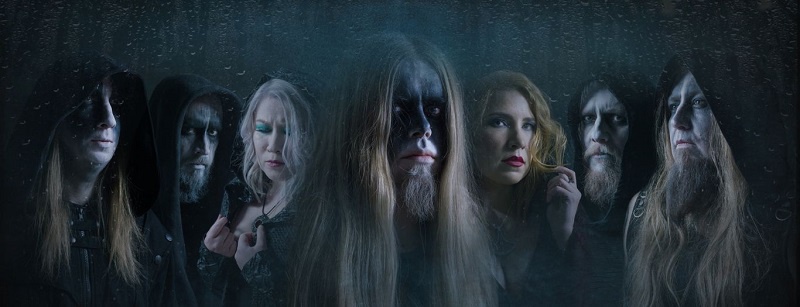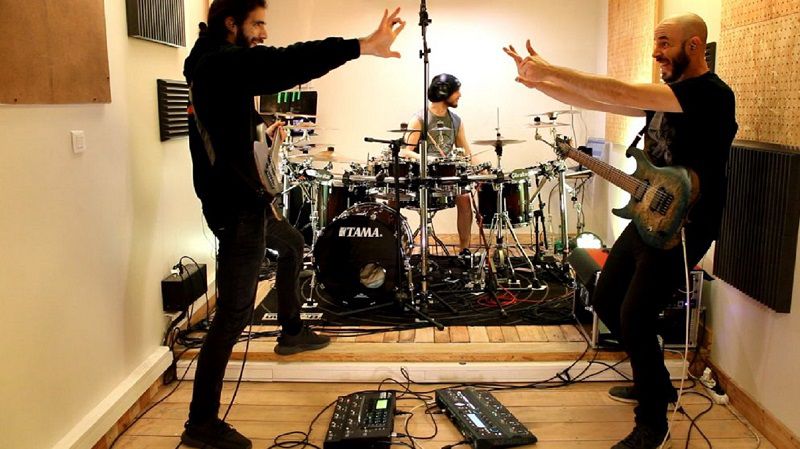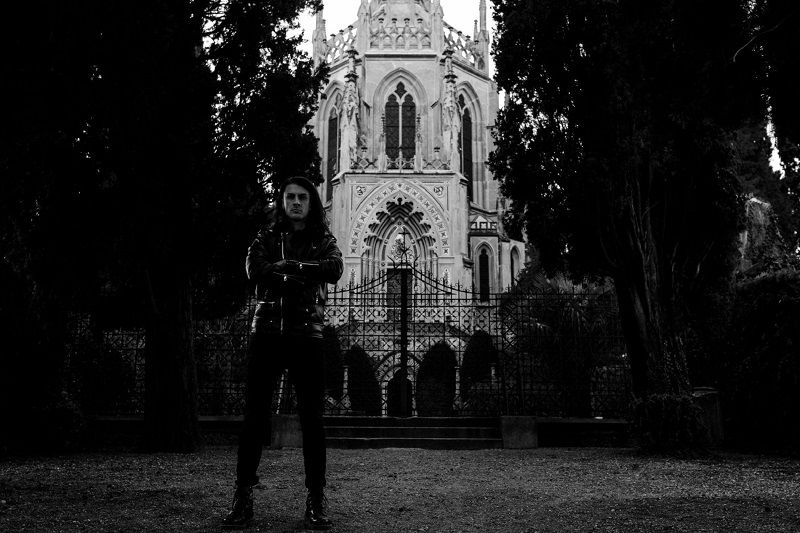Sarin Interview
7 min read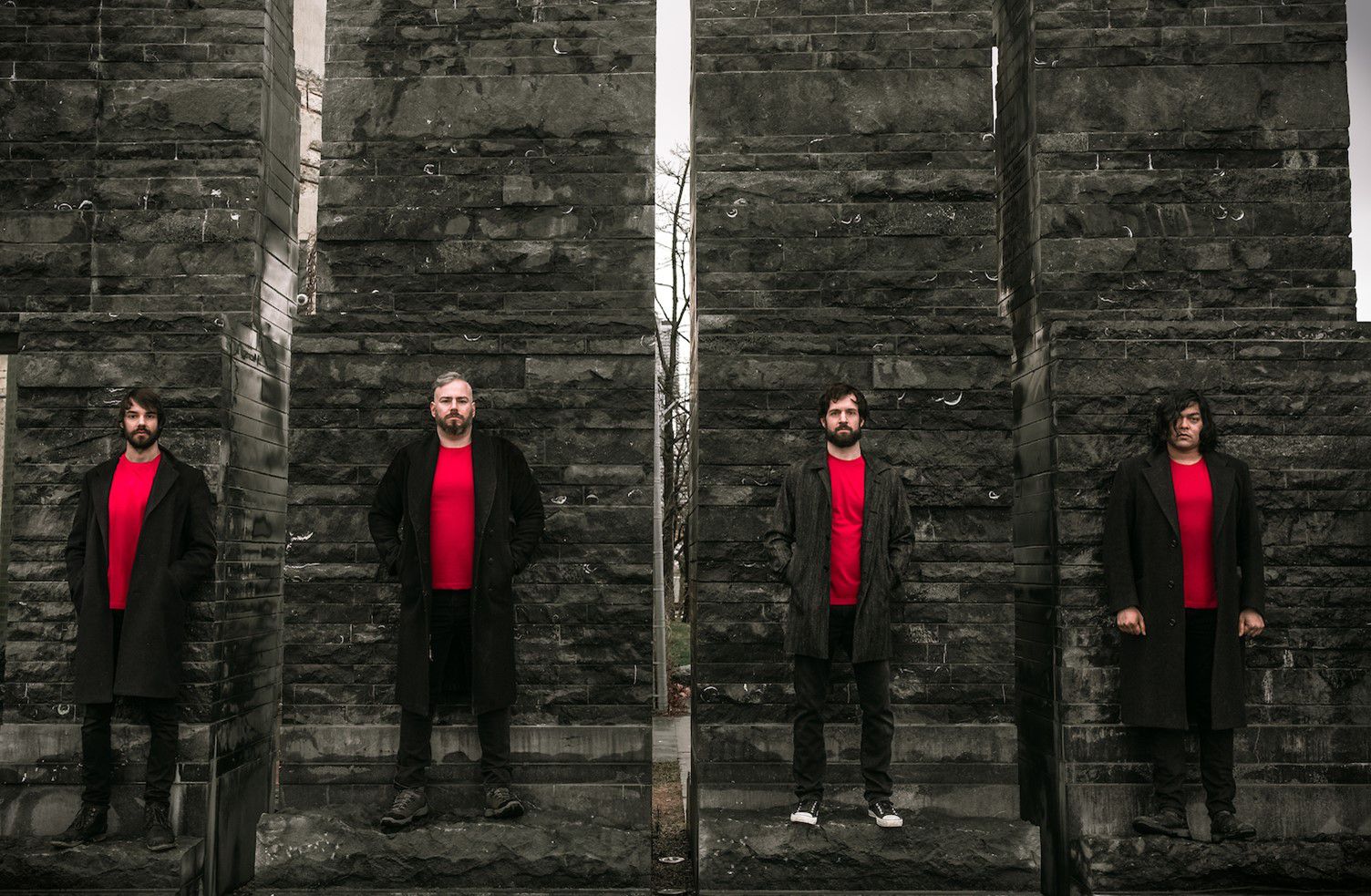
Toronto, Ontario’s Sarin is the brainchild of guitarist/ vocalist David Wilson. Formed in 2012, the band released their first album “Burial Dream” in 2015, followed by “Darker Lakes” in 2017. Four years later, and after some lineup changes the band is back with their excellent third album “You Can’t Go Back”. Drawing together a range of influences, the latest album blends the glacial, brooding power of Jesu, the crushing churn of ISIS and the emotive intent of Radiohead. David was kind enough to answer some of my questions for Blessed Altar Zine.
First of all, congratulations on the new album “You Can’t Go Back”. I think you did a great job. It sounds like you had a turbulent time making the album though. Was there any point when you thought you might not get it finished at all, and how did you finally pull everything together?
David – I don’t think there was ever any doubt that we’d finish the record. If there was any element of doubt, it was simply around when it’d be done. Luckily we didn’t have any immediate timeline to consider, so we had more time to tinker with it outside of the week of studio time.
The members of the band who left did so amicably, and tried to help out as much as they could prior to and after leaving. Our bassist at the time agreed to help prepare us for the recording by continuing to practice the songs with us after announcing his departure, and even let me use his bass on the record (it being hard to find a bass that’s already set up to play in drop A). Our then-synth player also created some synth tracks to be overlaid on top of the unmixed recordings after departing, though we didn’t end up using them.
How much do you think the songs themselves are a reflection of what was going on with the band and for you personally at the time?
David – I think about it a lot now, though I didn’t at the time. There was a definite struggle for a sense of greater identity as a band in the face of departing members and a general want to sound more like “ourselves”. That seems to have manifested in the songs being much more direct this time around.
Personally, I was watching my relationship with my then-partner fall apart, which contributed to a sense of loss and uncertainty. The actual writing of the songs was staggered throughout various points in that relationship, so I don’t know how much of the final product could be attributed to any one period.
Aside from everything else, how did the Covid situation affect the making of the album?
David – It didn’t have any effect on the making of the album, which was recorded in December of 2018. The release through Prosthetic took a hit in terms of the timeline, though. We signed with them in March of 2020 with an eye on releasing and promoting/touring for the album in the summer, but that got pushed for obvious reasons following the ensuing lockdowns.
Sarin is quite an elegant sounding word, but on the other hand, the first thing it makes me think of is the Tokyo subway attack back in the 90s, so there are some pretty intense associations. Is there any story behind why you chose this as the name for the band?
David – That elegance and morbidity was exactly what teenage-me wanted when he chose the name. Though I was a year off from actually being in my own band, I learned about a toxic compound called “sarin” through an elective I took in college and vowed to make it the name of my future band. It’s an aesthetically pleasing word on the one hand, and contextually diabolical on the other. It’s way too evil for our sound nowadays, but teenage David wanted a “metal” band name and adult David is dealing with it.

This is now your third album as Sarin. Looking back on your previous albums “Burial Dream” and “Darker Lakes”, how do you think the band’s sound has evolved up to this point?
David – Burial Dream was blunt ISIS the band-worship, though I probably wouldn’t have admitted it to myself at the time. Darker Lakes was us dipping our toe into what we considered more “experimental” waters, with a bigger focus on building a brooding atmosphere. That’s around the time that we’d started working with Brett, our former synth player, who I think gave that record a lot of its character. You Can’t Go Back is us stripping away a lot of the ethereal elements and focusing on writing songs that hit hard immediately.
In live or rehearsal settings, playing the material on Darker Lakes often felt a bit more like a trial to me than an organic performance – there were a lot of elements to be “recreated”, many of which required methodic planning that we spent a lot of energy trying to perfect. I think there was a group impulse this time around to do something that felt more urgent and less meticulous.
What were your first musical influences and who inspired you to start making music?
David – I got the drive to start playing electric guitar from the likes of Sum 41 and Green Day as a preteen. The bands (or attempted bands) I would be involved in for the next 10 years would always be some stripped-down version of whatever band I was enjoying the most at that time – which I guess is natural for most people. The others in the band have somewhat similar stories and youths rooted in metal and hardcore.
What is the band’s songwriting process like? Do individual members bring fully formed ideas to the table, or do things more come together collectively?
David – We have an ever-changing model of songwriting as a unit, but for the most part I will write up and record skeletons of songs that we cut up and sharpen in our practice space. I prefer to write holistically, as I rarely think in terms of a single melody or rhythm played on a single instrument. This has been a source of minor to moderate irritation for my bandmates, but we’re slowly finding a happy middle ground to work within.
Do you feel like you’re a part of a music scene and if so, what bands do you consider to be your contemporaries?
David – I can’t say I’ve ever felt like we were part of a scene in our hometown of Toronto, welcoming though audiences are. Maybe it’s just an “outsider looking in” mentality that’s followed me for longer than is reasonable, though. I think playing shows and small festivals with our peers in the Zegema Beach Records community is the closest we’ve come.
Locally, I’d consider bands like Hammerhands to be occupying a similar space.
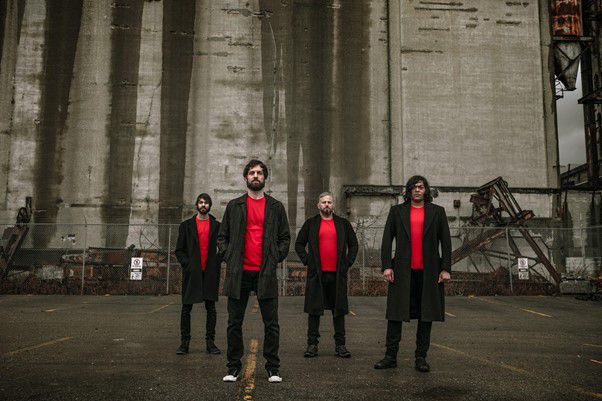
When you’re not making music, what do you like to listen to, and what music is inspiring you at the moment?
David – Like my bandmates, my listening habits vary from point to point. Right now I’m listening to KiCk i by Arca, Gas Lit by Divide and Dissolve, Methods of Human Disposal by Gravesend (thanks Matt), Discordian Disco by Filmmaker and Brown Loop by Duval Timothy.
Outside of music, has there been anything else recently that’s inspired you? Any great books you read?
David – I’ve been pushing myself to do more cooking. It’s an ongoing endeavour, but I find myself enjoying it more and more every time I go at it. Outside of that, meditation’s a daily ritual that helps remove me from a lot of the anxieties that can weigh me down. Making time to talk to my bandmates and friends via Zoom has also been keeping me going.
I’ve been sluggishly getting back into reading throughout the pandemic. I’ll let you know how it’s gone when we make the next record.
And finally is there anything else you’d like to mention or promote?
David – Use this time wisely. If you can afford to go to therapy, go. If you can’t afford to go, look for free or cheap resources. Pick up a new hobby – preferably one that activates your creativity in some way. Buy a cheap instrument if you can, or just sit down and draw or write something. It doesn’t have to be “good”, it just has to be.
The only good that can come of this “time off” is that we learn to be content with being alone when regular socialization isn’t an option. If you can come out a better person (whatever that means for you), you absolutely win.
Lecture over. Thanks for the interview, and thanks for reading.
Interview by: Tom Boatman
Photos courtesy of Kirsten Sonntag
Thanks again to David for taking the time to answer my questions. Sarin’s third album “You Can’t Go Back” is available now on Prosthetic Records on CD and vinyl from the band’s Bandcamp page. Follow the band on their various social media to keep up to date with news and releases.
Band
Bandcamp
Facebook
Instagram
Twitter
Youtube
Label
Bandcamp
Facebook
Twitter
Website
Instagram
**Please support the underground! It’s vital to the future of our genre
#WeAreBlessedAltarZine
#TheZineSupportingTheUnderground

